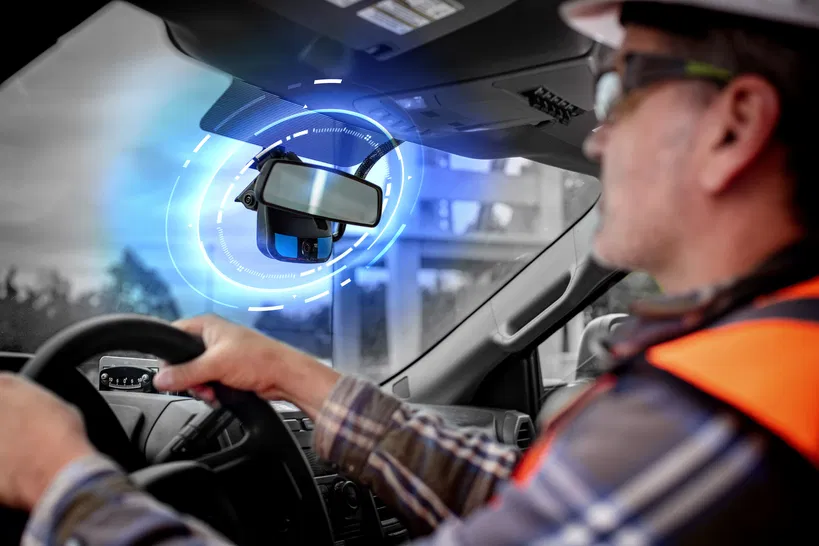Settlement in Biometric Case Sparked by Driver Concerns
A significant settlement in a class-action lawsuit involving the in-cab technology of a specific video company marks an important moment for logistics and transportation sectors. Approximately 3,600 drivers are set to receive financial compensation as a result of violations related to biometric data privacy.
Огляд врегулювання
- The company in question, along with a prominent transportation carrier, has reached a settlement totaling $4.25 million regarding claims made under Illinois’ Biometric Information Privacy Act (BIPA).
- Eligible drivers will see compensation ranging from approximately $631 for Illinois residents to about $845 for those residing out of state.
- While the company asserts its technology complies with BIPA, this settlement circumvents a court ruling, highlighting the complexities surrounding biometric information in the logistics sector.
- The incident reflects the growing scrutiny over biometric technology and its implications for companies operating in Illinois and beyond.
Details of the Litigation
This legal journey traces back to November 2021 when a driver initiated proceedings against the transportation carrier and the video technology provider. The case, spearheaded by one of the named plaintiffs, was ultimately incorporated into a federal lawsuit. The finalized settlement was approved by a U.S. District Court based in the Southern District of Illinois.
The controversy centers on allegations that the technology systematically scanned drivers’ facial geometry. This data was purportedly processed through complex algorithms intended to monitor driving behavior, resembling what many perceive as incessant surveillance using artificial intelligence.
Illinois — The Home Front for Biometric Law
Illinois emerges as a critical battleground for biometric legislation, primarily due to the stringent regulations set by BIPA, enacted in 2008. Its evolving framework has become a focal point for legal professionals engaged in privacy law and surveillance technology discussions.
As noted by legal experts, BIPA stands out as the most rigorous biometric privacy statute available, featuring provisions that empower individuals to take legal action when their rights are breached. This case underscores the financial stakes involved in compliance failures.
Settlement Breakdown
The settlement allocates one-third of the total to attorneys for the plaintiffs, roughly $1.42 million, ensuring that the costs associated with pursuing this class-action suit are covered.
Out of nearly 85,000 potential class members, responses poured in from 3,599 individuals, including 2,061 Illinois residents and 1,538 from other states. The plan reflected an intention to reward Illinois drivers fifty percent of the settlement’s total, indicating the importance of regional disparities in payouts.
Payout Comparisons
In their documentation, the company emphasized the substantial nature of these payouts in contrast to other settlements related to BIPA. They illustrated previous cases where individual compensations ranged dramatically—from a mere $47 to a maximum of $188.59.
Interestingly, another transportation case involving a different company led to payouts averaging about $1,000 per individual. This comparison illustrates the varying implications of biometric regulations across sectors.
Implications for Future Technology in Logistics
This case elucidates a critical aspect concerning the operational risks tied to the implementation of biometric systems in logistics. With BIPA’s stringent requirements for consent, documentation, and information retention practices, logistics firms must tread carefully in their technology choices. Interestingly, despite the settlement, the company denied any violations of the law, hinting at the ambiguities that remain in the legislative landscape.
Legal representatives pointed out the importance of the court’s decision to deny the company’s attempts to dismiss the case, which could reinforce the interpretation of biometric data usage—suggesting its potential to become a legal benchmark for future disputes.
The Bigger Picture for Logistics
The logistic industry is at a tipping point, facing mounting pressure to adapt to stricter laws regarding personal data. This scenario propels companies to reconsider how they implement biometric technologies, ensuring they remain compliant while facilitating improved driver safety and operational efficiency.
The conversation around this settlement also spotlights the evolving landscape of logistics technology and its operational risks. As these legal discussions unfold, firms may find that focusing on transparency and compliance strengthens their market position.
Summarizing the Takeaway
In summary, the Illinois biometric case settlement provides profound insights into the challenges as well as opportunities facing logistics companies navigating privacy laws concerning biometric data. While the monetary compensation represents a substantial decision in favor of affected drivers, it serves as a warning for all in the industry about the potential ramifications of technology use.
For logistics providers and transportation firms, it’s crucial to stay informed about such developments and implement sound practices to address privacy concerns. Platforms like GetTransport.com offer tailored solutions that simplify logistics while meeting a diverse set of transportation needs, be it for office relocations or large-scale freight services. By facilitating efficient and cost-effective transportation, GetTransport.com helps businesses navigate these evolving landscapes with ease. Don’t miss out on securing your cargo transport at the best prices globally—consider GetTransport.com for all your logistical demands. Забронюйте поїздку.

 Нещодавнє врегулювання біометричної справи в Іллінойсі дає розуміння для логістики">
Нещодавнє врегулювання біометричної справи в Іллінойсі дає розуміння для логістики">